We received so many substantive responses to our field-wide query of playwrights and artistic directors about their response to the recent election that we made this a two-part effort. The questions we asked them all were: What are you hoping or intending to do in response to the election? And what can theatre do to shape or direct the national conversation? Part 1 is here.
History Has Its Eyes on Us
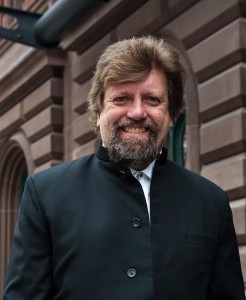
We should not fool ourselves that this is political business as usual. The election of Donald Trump both reveals and exacerbates a deep fissure in this country, a fissure more dangerous to the United States than any since before the Civil War, and more dangerous to the planet than we have ever experienced.
In the face of this, humility is a necessary but not sufficient tool. We must recognize that the theatre alone cannot solve or heal the wounds of this nation; we can only be small part of the solution. But that humility must not let us off the hook. History demands of us that we do all we can to summon the better angels of America.
I don’t have answers; I’m reeling, as we all are. But here are a few ideas that I have been mulling over the past three weeks.
We need to affirm the fundamental values that created the theatre in the first place. Theatre is the most democratic art form, and its values are democratic and egalitarian values. We believe that truth only exists in conflict, in the dialectic, in dialogue. We believe that everyone should have the chance to tell their own story, be the heroes of their own lives. We believe that coming together as a community to listen to opposing points of view is necessary for a democratic citizenship. The theatre matters. We have much to offer to our national struggle. Nothing that happened on Nov. 8 reduces the importance of our work; nothing that happened on Nov. 8 frees us from the obligation to fiercely protect and promote our values.
We need radical solidarity with one another. In this time of national crisis, all the forces that make us competitive with each other, that pressure us to hunker down and make our own survival paramount, must be ferociously rejected. We all have strong local identification, but we must all work together to see our missions as national, to work together to remind this country of what we all share, not what divides us.
We must dramatically increase our efforts at inclusion, and we must define inclusion in class terms and in geographical terms, as well as the categories of race, gender, ethnicity and sexual orientation which have been so central to our work. The nonprofit professional theatre has overwhelmingly been centered in blue regions—urban, educated, affluent environments. The exclusion of so many from the economic and technological advances of the past 30 years has also been an exclusion from the cultural sphere: Why shouldn’t Trump voters boycott Hamilton? They haven’t been invited to the show; it won’t play in their cities, and they couldn’t afford a ticket if it did. Lin-Manuel Miranda and the entire Hamilton team have behaved with incredible courage, dignity, and grace through these tough times, but we can’t look to the commercial theatre to solve these problems.
It is our job, the nonprofit theatre’s job, to take our own mission statement seriously. If we want to matter, we have to listen to and speak to all the people in our country, not just those who already feel part of our community.
So what should we do? I don’t know. But I know it is my job to figure out, as best I can, how to respond. I’m going to do it the only way I know how: talking to my colleagues, the artists I work with, the theatres I collaborate with, the brilliant staff of my beloved Public Theater. With all of you. And I know these three principles are going to provide me with guidance as we make concrete, practical plans. Which we must do.
Oskar Eustis, artistic director, Public Theater
New York City
Make Space
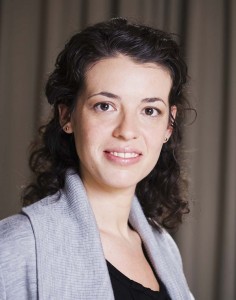
My grandmother’s was a food = love home. The meals were modest, sometimes limited in quantity if the grocery budget was tight, but even the way Abuela placed the tin plate on the table revealed a practiced and virtuosic love. Hers was a humility bursting with enterprise: In times of scarcity there ought always a be small bowl of food to offer to a neighbor.
The danger of food = love came when the meals went beyond nourishment to something more voracious—consumption for consumption’s sake. Abuela left her farm in Puerto Rico in the ’50s, trading a familiar agrarian poverty for an unkind Philadelphia poverty. What a wager she took coming here, what a bold move it was.
By the time of my adolescence, her risky bet started to show returns. While some of her progeny remained mired in poverty, my mom bought a new red Volvo with leather seats. We drove to the local sushi restaurant and ordered sashimi a la carte. By my 20s, friends were charging foie-stuffed kobe burgers to corporate law accounts. Abundance had tipped into vampirism.
Reflecting on this election cycle, I wonder if information = truth is the Internet-age version of food = love. It is imperative, of course, that we search for, scrutinize, articulate, and share what information we can gather—it is democratic.
But in the months leading up to Nov. 8, my information = truth gauge got off-kilter. I became a sucker for every bit of click-bait, eschewing information for binge-consumed spin. If there were articles engaging substantively with each candidate’s platform, I didn’t find my way to them. Instead I consumed (miserably, growing more sick with each click) mud-slinging op-eds, grotesque tweets, debate spectacles.
The morning after, I felt disgusted, like an addict who looks in the mirror after the binge. I was the fool complicit in my own duping—I had gone right along with the scam. The scam goes something like this: The more lavish the plate of food, the better the meal. The more media consumed per hour, the vaster one’s knowledge.
On Nov. 9, I turned off the news. Even trusted sites, like The New York Times, had to go dark—because it wasn’t just “fake news” that had duped me, it was “real news” too. I returned to my dog-eared James Baldwin, flashlight in hand, as the kids slept. I underlined new passages, wrote fresh margin notes atop fading ones. My mind made space for a thing called quiet. My habits returned to what Danielle Allen calls “slow reading.”
Fellow artists, let’s reject the rhetoric and infrastructure of “consumer content.” Let’s renounce the toxic suck of the five-minute news cycle. Ours must be a practice of panoramic time. For we are a past we did not choose but inherited, and we architect the future with each new page we write.
Let us nourish each other.
Quiara Alegría Hudes, playwright
New York City
A Time for Big Ideas
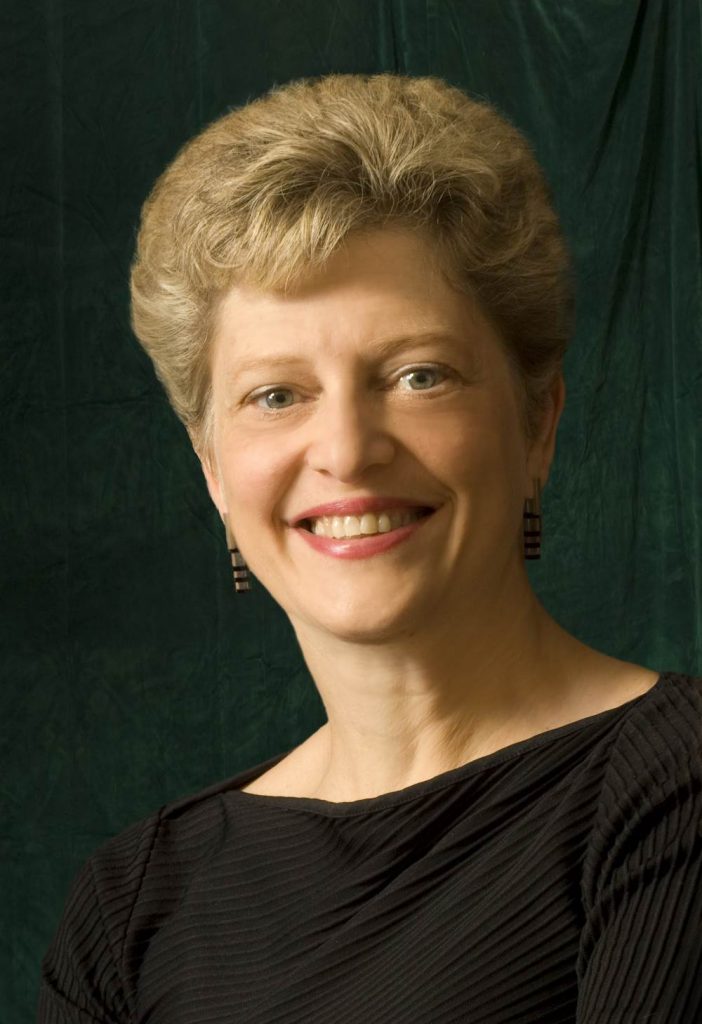
What is to be done?
Two days after the election, I found myself staring at the endless rows of plays on my office bookshelves. Hoping perhaps to read my way back into clarity, I began by pulling the Arden Hamlet off the shelf and devouring the play from start to finish as if I had never before encountered it. The intensity of Hamlet’s grief and his bewilderment at having been so utterly betrayed by his own uncle and mother felt immediate and heartbreaking, but what struck me most was the way in which Shakespeare reveals how quickly change can happen, how an orderly kingdom ruled by a loving king can, with a stroke, become something almost unrecognizable. Indeed.
Next I went in search of Brecht, whose Resistible Rise of Arturo Ui I have directed twice and who understood better than anyone the incremental creep of totalitarianism under the guise of helping the little man to succeed in selling a few cauliflowers. Then I decided it might be a good moment to reread a play titled Democracy. Surprisingly, Michael Frayn’s complicated look at Germany in the 1970s, and at Willy Brandt’s indirect and chaotic journey toward a reunited country in the face of endless political turmoil, gave me a great deal of pleasure and a small modicum of hope.
Finally (I know this is the most random reading list ever, but bear with me) I devoured Susan Glaspell’s Chains of Dew. In this 1922 play about a sophisticated East Coast liberal birth control advocate who travels to the Midwest to propound her cause, Glaspell takes a deep and open-hearted look at how a clash of values can yield anything but predictable results, and how careful we should be in assuming that those with whom we disagree are unsophisticated boors incapable of nuance.
So what did I learn? I think one avenue for the American theatre right now is to reinvestigate our past, to wrestle again with works of great classical literature that expose the complexity of political power and societal change. I think it’s time to pay attention to history again. It’s time to remember that this election won’t be the first time nor the last that we have watched in terror as our beliefs got upended; it won’t be the first time that the media has gotten it all wrong; it won’t be the first time that we have had to question the nature and structure of representative democracy. It’s time for big ideas in the theatre again.
From the moment Socrates drank his hemlock, the strange and complex system we call democracy has been threatening to implode, to fall prey to idiocy and extremism, venality, and the desire for simple answers. But democracy is also the system that gave rise to the idea of theatre as a crucial civic good. We owe it to that history to persevere with intelligence, and to expand our understanding of the context in which our current chaos is happening. Then perhaps we will see a way forward.
Carey Perloff, artistic director, American Conservatory Theater
San Francisco
A Political Reality Check
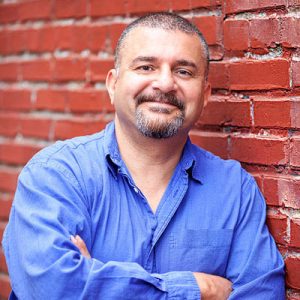
The thing about this moment is that it has been this moment for a fair number of people for a very long time. This particular historical moment is more about peeling away a layer of protective gauze that has made things palatable for a lot of people that perhaps should not have been made so palatable, or normalized, or mainstreamed. It’s weird to walk around in another political reality—an alternative universe where people are hurting a little too pointedly, while others imagine all is well.
Specifically as it relates to theatre, I hope this moment will stop making the word “political” such a dirty word when it comes to the types of plays written. The condescension shown to theatre artists who try to tackle the societal forces at play, as they see it, has been a little galling. Every time I read a critic lambaste a playwright for being too political, or for having an agenda, or for trying to understand the political realities he or she lives in, I cringe, fearing that it will dissuade playwrights from trying to engage with the political worlds they live in.
I too enjoy so-called domestic dramas, romcoms, or existential-angst plays; I’ve written a few myself. But I do hope this moment is also a call to arms when it comes to encouraging playwrights to unabashedly give us their perspective on the current political reality as they see it.
Yussef El Guindi, playwright
Seattle
Art Beyond Nationality
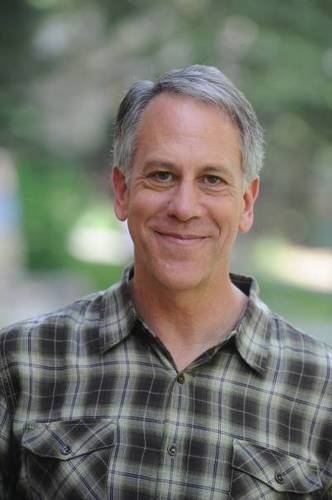
“All real living is meeting.”
-Martin Buber
If you are a theatre artist and travel outside the U.S., it becomes immediately apparent that you are gloriously and irrevocably part of an inclusive global community. You can sit and talk with a theatremaker anywhere in any part of our world, and—even if you do not speak the same language—feel ineffably, joyously cut from the same cloth. It’s a crucial and celebratory discovery. And at this moment more than ever, it is the responsibility of our theatre field to reach out and forge partnerships across the seas. As one of our Middle East playwrights has noted: “Where politics have failed, culture must succeed.”
“America is the great destroyer,” I am told, when I ask what our country signifies to a group of Arabic-language artists. My heart shatters. “America is also the great hope,” is urgently appended. This is more than an afterthought; it is a plea. As we enter an unknowable chapter in our nation’s foreign policy, my hope is that theatre practitioners—as emissaries of possibility—will endeavor to combat the isolationist mentality of a new administration. It is in the sacred space of our rehearsal halls and on our stages that person-to-person conversation and discovery may offer up illumination in dark times. I fiercely urge my colleagues to find ways to combat the anxiety and alienation that this election has championed.
Sundance is hoping to lead our play development community into a new paradigm for storytellers. For almost two decades we have extended our reach beyond our shores, to theatrical communities where great change (sometimes actual revolution) has beckoned a new generation of theatremakers to give voice. Our Middle East and North African Initiative brings Arab-language writers to all of our U.S. Labs. Our convening of American and MENA artists at our U.S. Labs, in the Mediterranean basin and in Europe, is one core value that reflects ongoing global support of writers, directors, and other theatremakers. I suppose my vision is one where an undeniable connectivity replaces nationality.
For many years, I practiced acupuncture. In traditional Chinese medical theory, nothing is compartmentalized. Spirit, psychology, the body are not separate, or even interdependent related notions: They are virtually one and the same. I would posit that this is also true of us humans, especially as mass migrations animate our interconnectedness. We celebrate cultural differences in the same moment we embrace our shared human-ness—“Ubuntu,” as the East Africans call it. Our politicians revel in notions of “the other” which must be countered.
Fortunately, artists naturally and uniquely inhabit a borderless reality. Let’s own that. The richness of hearing one another’s stories and of sharing ways of creating work can not be dismissed or undervalued. American and international artists must sit around one blazing fire, listen to each other. This is crucial to our peaceful coexistence, to global citizenship, and this beneficial exchange is indelibly a two-way street. That blaze offers us a glimmer of hope.
Let’s make it safe to be unsafe. Let’s not shy away from being leaders. As artists must do, let our visions of one world proliferate. Walls and imagined boundaries are the enemy, manufactured from fear of the unknown. Let us write, compose, speak, sing, and yell our stories in every language. “All real living is meeting.”
Philip Himberg, artistic director, Sundance Insitute Theatre Program
New York City
Stay, Fight—and Laugh
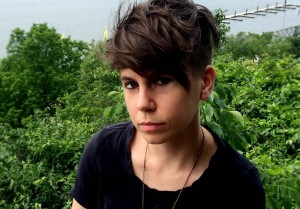
I was often living out of the country during the Bush dynasty. When people asked me why the U.S. was behaving like a lunatic, I had some distance—emotionally and geographically. “I don’t know,” I’d say, “America’s insane.” Translation: “Thanks for the passport, Uncle Sam, but…see ya.”
It’s different now. I’ve been back for a while. I care in a way I didn’t know I could. There are many people I love, scattered across this country, who are now even more vulnerable than they already were. I care because I believe in America’s potential—much of which is buried, but still there. I will confess that the morning that I watched Hillary give her concession speech, my first impulse was: Get the passport, get in a cab, do not pass go. Back to Japan? Who doesn’t love Sweden? I voiced some of this to my friend and collaborator Dan Kluger, who had joined my partner and me to watch the speech. As I tried not to cry into my cornflakes, he told me—firmly but kindly—that now is not the time for leaving.
My first reaction: WHAT DO YOU MEAN, THERE WILL NEVER BE A BETTER TIME TO LEARN SWEDISH.
My second reaction: This is my country. It will never need its artists, intellectuals, activists—in a word, its conscience—more than it does now.
So.
First of all, I stay.
I’m of Swiss-German stock, and “Walk it off” is generally the rallying cry of my stoic ancestors (or perhaps, “Walk it off…and show up on time”). In honor of my pragmatic forebears, my second response is divided in two parts:
As a citizen: I’ve started ongoing donations to a series of organizations, among them Planned Parenthood, the Sierra Club, and the ACLU. I also believe in putting my body where it can do the most good, whether that’s volunteering or intervening when I see racist, sexist, homophobic, or Islamophobic harassment. What we do with our money and our bodies is every bit as important as what we say or write.
As a writer: More than ever, I feel the need to help amplify visibility. As a queer woman, it is crucial to me to continue putting nuanced, empowered, complex queer and female characters onstage and on screen. As a white ally, it is crucial to continue advocating for diverse casting when it comes to my work, as well as advocating for fellow writers/theatremakers who are of color.
Finally, I would say: My communities, theatre and otherwise, are in a period of mourning. That’s important. But I would make a case for comedy. Humor is one of the strongest, sharpest weapons we have. More than a weapon, humor is a mirror, a rallying point, an act of self-examination, a place of healing, a challenge. I’ve never understood the distinction between “realist” plays and “absurdist” ones—absurdist comedies have often seemed to me some of the most truthful reflections of any cultural moment. Bring on the dark, keen-eyed comedies. We can laugh and fight at the same time.
Jen Silverman, playwright
Brooklyn
Hearts and Minds
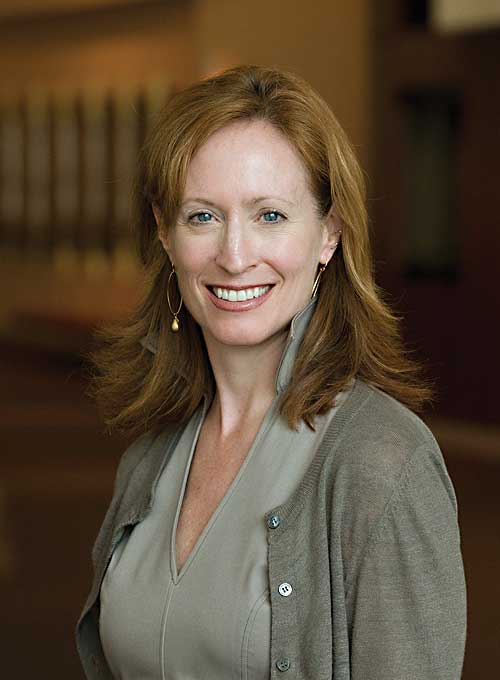
Access the heart.
Sounds preposterously simple, doesn’t it? Ridiculously naïve at this time of overwhelming and seismic shifts in sectors economic, geopolitical, environmental…
And yet.
There was the realization one Wednesday in November that within 20 feet of pretty much everyone was someone else we fundamentally didn’t understand. And the crashing realization that followed—for me, anyway—was that, at that particular moment, I didn’t care enough to try. An untenable limitation for a theatre artist, that. For without empathetic curiosity, we are painters without paint.
When rhetoric has replaced dialogue and xenophobia has supplanted inquiry, we cannot hide. Nor, though, do we gain transformative traction through taking up the oppressors’ arms. For just as Audre Lorde taught us that the master’s tools will never dismantle the master’s house, the master’s vitriol will never unlock the master’s heart.
We tell stories. As directors, we stand beside speakers with narratives other than our own and ask them to tell us what they see so we can build a telling of that narrative with sufficient doors and windows for an audience of wild multiplicity to all walk inside a shared moment of human condition.
Samuel Johnson said that the human mind, once expanded by a new idea, does not retract to its original size. Nor, I think, does the heart. And all I know to do right now is the work of expanding the heart.
It is my therapy, it is my solace, it is my job.
Susan Booth, artistic director, Alliance Theatre
Atlanta
Outside the Comfort Zone
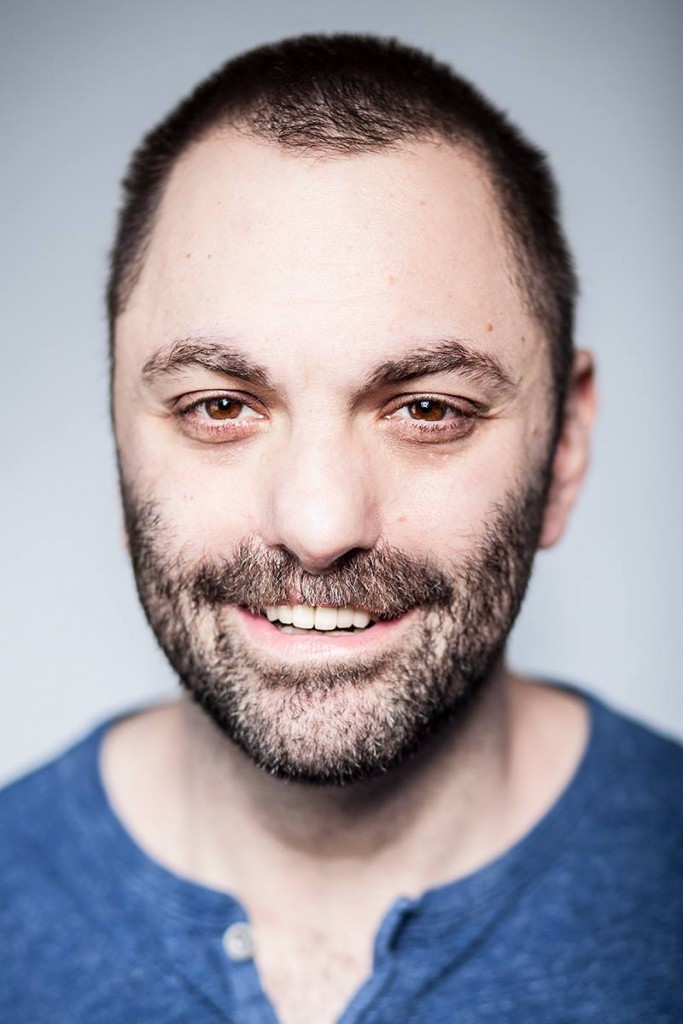
Our major theatres don’t produce diversely enough. I know theatres are worried about alienating subscribers by doing plays they won’t like, but given that the election results shocked so many people, now is a good opportunity for artistic leaders to say to their audiences, “We need to produce work that more accurately reflects the vast ideological diversity of our country. The theatre has to do more than entertain, express conventional wisdom, and gently challenge us. It has to confront us with new, unexpected, and radical points of view. This may be uncomfortable and even unpleasant, but it’s necessary.”
In practical terms, I think this means not only producing work that audiences may not like. It means producing work that artistic directors may not like—plays they may not agree with, and more than that, that they may not find dramatically effective. Because I think the two things are linked. Whether producers are aware of it or not, they tend to pick plays with worldviews that match their own, and when they read plays with differing worldviews, they often fail to recognize this difference and instead reject the work on an “artistic” basis.
I think theatres should have a diverse body of readers who all evaluate the same plays, then meet as a group to discuss them. I’d propose a very simple first step: Every theatre should produce one play a season that the artistic director actively dislikes but that at least one reader saw something in and made a compelling case for.
There are so many good writers who have not gotten a hearing at our big theatres. If our industry wants to impact this historical moment, it must include their visions—psychological, spiritual, and political—which will often be at odds with the views of upper-middle-class theatregoers, funders, and elites. There is a theatre of new writing out there that has experienced and thought about our country in ways that people in our institutions have not. It’s time to bring it into the fold.
Christopher Shinn, playwright
New York City
A Charged New Period
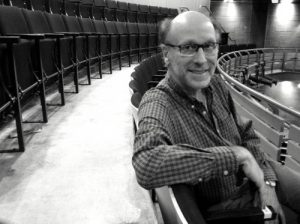
Overnight our nation has changed in frightening ways. There is no time for complacency. The role of art in the coming struggle is blazingly clear. We must keep the torch of conscience alive. We must ask the hardest questions and make a place for the most urgent dialogue. We must challenge artists and audiences together to step up to new understandings.
Woolly Mammoth has played this role for 37 years. We’ve just closed a run of three plays about pussy, Trump, and Syria, and now we are called by an undeniable new urgency. As I write this, six incredibly talented comedians from Chicago are swiftly updating Black Side of the Moon so that it charges headlong into the cultural chasm that has revealed itself in our election. The remaining plays in our current season, and those I will soon announce for 2017-18, will be works that demand our attention right now. At Woolly, we love comedy and satire and dramatic intensity and stylistic experimentation, but their purpose is to help us look at the challenges of our moment, not to look away. For escapist entertainment, go elsewhere.
We are stepping into a charged new period and it will not be easy. I’m sure I will be asking for support in many ways over the coming few years. For now, I urge us to join together and experience how the art of theatre can provide solidarity and enlightenment and purpose. We are in this together.
Howard Shalwitz, artistic director, Woolly Mammoth Theatre Company
Washington, D.C.
Our American Seppuku
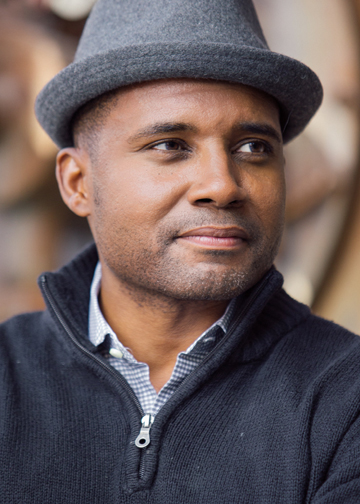
On Nov. 8, 2016 the United States donned its ceremonial garb as the world watched in stunned disbelief at a country that would rather disembowel itself than be taken a prisoner of progress. But those of us on the ground and in the regional community, those of us with boots in the soil from Appalachia to Alabama, knew. In the way an old hound can smell a summer thunderstorm miles away. We knew. In the way a waterman warns of a rising tide, we knew. And a handful of us, we artists of color, knew. In the way that America the beautiful can also be the home of the scorned. In the way that America has continually and consciously reneged on promises made in the womb, we knew. In the way that Nina Simone sang about white “Backlash,” we knew the flood was coming and the only thing left for us to do was lace up our galoshes.
Only now we cannot tread so lightly. We cannot be sheepish nor ambiguous in our work. We must speak unabashed truth to power. Because help is not on the way. Because we are the light. We are the connective tissue holding it all together as the body politic, the beloved community, is under siege. Our artistic organizations are in harm’s way from every corner. And we must be vigilant and watchful for those who seek to cannibalize and capitalize on a weakened theatre community. As we did in the era of apartheid we must now divest. Divest in company sponsors and business partners that not only benefit from a Trump administration but those artists (yes, artists!) that abide it.
Sixteen years ago I set out on a mission to document and dramatize untold and lesser known African-American histories. My mission was to be a supplement to an increasingly engaged population hungry for works from the diaspora. More often than not, however, I found that I and my work were the whole meal—from opening line to post-production talkback, a history lesson and cultural symposium all in one. Now the fight is darker, more sinister, and willful in its blindness. As Dr. King said, “Nothing in the world is more dangerous than sincere ignorance and conscientious stupidity.”
Because Donald Trump has already fulfilled the cornerstone of his campaign promises, to build a wall. Only there is no brick, nor mortar, nor wires barbed. We have built walls between us. Between our friends and neighbors. Between those darker than ourselves. Between those wearing hijabs and those wearing burqas. Our work must do more than push back, it must topple these walls built of anger and fortified with fear. Moreover we must engage on the ground, in the underserved communities that not only saw hope in voting for Trump, but those who felt hopeless and refused to vote at all. Come out of the ivory towers producing work that trivializes and caricatures the lives of folks living in the Bible and Rust Belts of our country. Because they, like us, are mad as hell. But their anger is at a world that has left them behind, empty and impoverished. Instead of filling that crevice with the medicine that we know heals the heart, they are being spoonfed the tripe of hate, racism, and xenophobia. We must combat this in no uncertain terms with the balm of love and the salve of understanding as we always have, but this time without cynicism or tongue in cheek.
If we are to create art that reflects the beloved community it cannot have walls, indeed it cannot even have borders. If we do this we have a chance to mend the old wound now made fresh again. If we don’t, it will fester, it will bleed, it will become repugnant, it will not scab over. It will infect us all till we drop dead inside, with our arms wrapped around our loved ones while hissing and heckling the hated.
Mike Wiley, playwright
Raleigh, N.C.
Create Dialogue, but With Who?
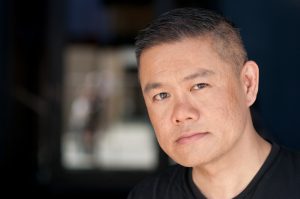
With each of our plays, Victory Gardens has always created civic dialogue around diversity, politics, and social justice. With the recent change of political climate in our country, we will be working harder than ever to present more work that speaks to our humanity and advocates for change for a more inclusive, unified, and accepting society. For the rest of our season, I’m working with playwrights on responding more immediately to issues that are under siege in the current state of our nation. As for season planning, our mandate will be to build more bridges and to open our space to people whose opinions differ from us; we can’t be unafraid of engaging in a meaningful and difficult conversation with them through our work.
I fear that we, the American theatre, may have been preaching to the converted for too long. We’ve become as polarized as our nation. Our audiences also tend to belong to a homogeneous class, education, philosophy, and often politics; we as a field can be elitist and too removed from the rest of the country. The outcome of the recent election is our rallying cry.
What kind of plays will we be producing for the next four years? How do we reach out to other parts of our state and country who do not share our values? How can we be in one space and share an experience together? Can we change the way we produce? Do we tour our productions to these communities? Are we making our theatres accessible to them? Are we telling their stories? How are we inviting them to our space? I still believe in the power of the performing arts and their uncanny ability for us to gather, to feel, to celebrate, to breathe, as one nation.
Chay Yew, artistic director, Victory Gardens Theater
Chicago
A Checklist for Hard Times
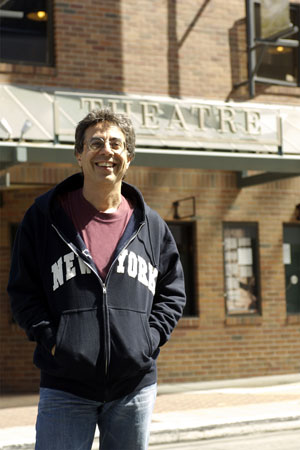
Do what we do best:
- Be ruthlessly honest (starting with ourselves)
- Build deep and lasting artistic relationships that expand our sense of possibility
- Challenge our communities to imagine, feel, and think differently
- Reveal history
- Educate each other
- Expose hypocrisy (starting with ourselves)
- Celebrate justice
- Create empathy
- Build collective intelligence
- Choose sentiment over sentimentality
- Fight for the inalienable right for life, liberty, and the pursuit of creativity
- Entertain the hell out of everyone (starting with ourselves)
Tony Taccone, artistic director, Berkeley Repertory Theatre
Berkeley, Calif.
Present Tense
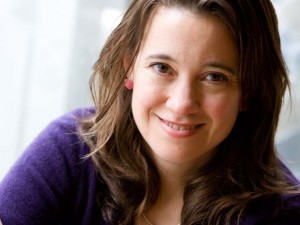
I have two plays in production right now; one takes place during the Reagan administration and one under the Nazis. I didn’t write them as parables because I lacked the imaginative capacity to believe they would be relevant. I can’t take much joy in the relevance, but I feel it.
I’m wrestling down two other projects, one about an anti-affirmative action lawsuit among New Haven firefighters that reached the Supreme Court, another about a college professor trying to stage her play about Gaza on a campus boiling with what seemed a few months ago to be overblown tensions among comfortable students. These are American worlds in microcosm, a world that now includes Donald Trump, a world that may no longer be a democracy.
I’m looking at these works in progress. Looking at “the present” as a concept—so easy to type at the front of a script, but “the present” changed overnight.
I’m staring at my limits and blindness, everything I missed. I believed I knew no one voting for Trump. My world is populated by artists, academics, Jews, and queers, and I didn’t think I had “people” to wrangle. But my mother voted for Trump. Yeah, she and I are not close, and yeah, she played along when we talked about the election, but in my imagination we were on a shared road together toward the first woman president; my mother and I would celebrate this milestone together. But I misread my own mother. For a person who has spent much of the last 30 years trying to figure out other human beings, that’s pretty humbling.
Part of me wants to move quickly and part of me wants to work very slowly. Not the first response, but the deeper investigation.
I’m trying to make room each day for foot-soldier activism, phone calls other people say are important. I’d rather call my representatives than make calls to promote my newly relevant play. Also I started some abortion rights activism a couple years ago, and I’m picking that back up, as a citizen.
The theatres? It’s terrifying how much artists depend on institutions. The theatres are our gatekeepers and our bullhorns.
Yes, theatres should plan next season with the new not-normal in mind, swap around some shows. But also think about who will tell the truth, and how, as the truth becomes increasingly suspect and rare. Theatres need to be in the truth-cultivating business.
That’s going to get harder. It is going to get harder to balance what theatres already must balance, the preferences of the wealthy and the needs of real people. Theatres have wealthy board members who voted for Trump. How will that fadge?
Theatres with buildings? Open them up right now. Monday nights, late nights, mornings. Be relevant right now. Be the town hall, the village square, the secular temple. Right now folks are gathering. Let them in.
Karen Hartman, playwright
Seattle
Across the Divide
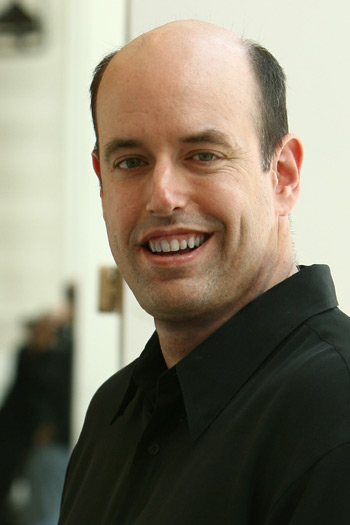
I’ve been joking for a year, never imagining that it was going to be true, that if Trump ever got elected I would have to rip up my whole season planning for the next two years and rebuild it from scratch. And then it turned out to not be a joke. It’s hard to know what’s going to happen next; it’s tricky to program something political for 18 months from now. Because it’s really hard to know what world we’re heading toward. For next season, I still have two unannounced plays, and I definitely went back to the drawing board on those two.
I was really shocked by this last election. I knew I was in a bubble—I knew I was in a coastal, liberal, art, urban bubble, but I didn’t realize how profound that was, how vast the gulf is between the way I see the world and the way almost 50 percent of our country sees the world. Lots of people are trying to stand up to destructive change, and I think that’s important. I also think there’s another thing that we have to do as arts organizations, which is foster a conversation across both sides of the divide. Talking to our own half of the country repeatedly is very empowering, but I don’t know if it’s going to solve many problems. The question, What would a piece of art look like that both halves of the divide could discuss and engage with? It’s a very interesting question. I would say in general, theatre is speaking to the left. So what kind of conversation can we have that would help bridge, unite, and create deeper connections between people, and more sense of community?
I think about community more now than ever. We have a very fractured community. What would it take to move toward a more united country?
Christopher Ashley, artistic director, La Jolla Playhouse
La Jolla, Calif.
Physician, Heal Thyself
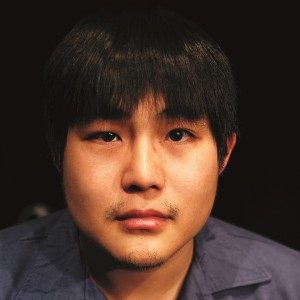
After the election I truly went numb. We in the theatre were powerless to halt the rise of a candidate whose presidency represents an existential threat to countless marginalized groups. A man who’d essentially built a coalition out of racism, sexism, homophobia, Islamophobia, anti-Semitism, ableism, and intolerance (and then turned a blind eye at all the hate crimes that ensued). Not only were we powerless to stop him, but we may not even be reaching the everyday voters who brought him to power. What if the theatre is just a liberal echo chamber telling pleasing bedtime stories to rich people?
Yet despite the grave implications of this election, my artistic intentions remain largely unchanged. I will continue writing stories from underrepresented perspectives. I will keep honing a full-throated political voice that speaks truth to authority. I will keep championing a more diverse theatre, and will advocate for fellow artists who share that inclusive vision. And yet I also know that we as an industry have some housekeeping to do. I’ve heard a lot of people say that these years will make for some great art, but I say fuck that—we’re already making great art. What we need is a more engaged audience that seeks truths and not comfort—people who are willing to meet us halfway.
I also think that in order to combat this country’s pervasive bigotry we need to approach diversity (and gender parity) with more intention and rigor than ever before. Consider the latest statistics from the Dramatists Guild/Lilly’s study “The Count.” Over the past three seasons at theatres nationally, plays by white writers constituted 88 percentof productions. Consider the actor statistics from the Asian American Performers Action Coalition (AAPAC): Since 2006, white performers have averaged 77.6 percent of Broadway and Off-Broadway roles, even though New York City’s population is only 44 percent white. How can we shake our heads at the people who won’t accept that a diverse America is our reality if we won’t accept the hard work of realizing that diversity in our fictions?
Mike Lew, playwright
Brooklyn
Speak the (Free) Speech
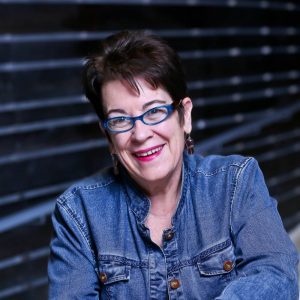
This month, after Vice President-elect Mike Pence took in the award-winning hip-hop musical Hamilton, President-elect Donald Trump took to Twitter to say: “The Theater must always be a safe and special place.”
This may be one of the few things with which I agree with the president-elect: The theatre is a special place.
I also believe that the theatre is a place to take risks, to challenge the status quo, to promote new and diverse voices, to speak truth to power. The theatre is and must remain a place to exercise our right to free speech.
In the months leading up to the election and since, I’ve seen how the incoming administration has ripped up the media: discounted them, lacerated them, and told the public that whatever the press says are lies and fabrications. As the free press goes, so go the rest of us. Plays and musicals produced at Arena Stage, at theatres across this region, and around the country involve a search for truth, not the hiding of it; a critique of power, not the exercise of it; an invitation to conversation and insight, not a shutting down of dialogue.
As the media become threatened and reviled, so do we when we speak out in meetings, on social media, by marching in the streets, or in the theatre. Now the American theatre of honesty and introspection about our society and its dreams is being threatened. We’re the next ring out from the press, along with other language-based artistic disciplines. The theatre is the place where playwrights speak their minds through characters to a community of audience members who for two hours or more come together to listen to another perspective. I’ve traveled to Eastern European countries and to Russia and have seen what repression of language does to an art form and a people. I’ve seen how subversive ideas have to be embedded in productions so only those “in the know” get the message.
At Arena Stage, we focus on American voices, American plays, and American artists. Our America in play form ranges from great American musicals such as Rodgers and Hammerstein’s Carousel to Intelligence, a new play by Jacqueline Lawton about a covert operator whose cover is blown by the U.S. government. There has to be a diversity of voices to represent all of our views. Think about Lorraine Hansberry and A Raisin in the Sun or Lillian Hellman and Watch on the Rhine. Think of Tony Kushner and Angels in America or August Wilson and Joe Turner’s Come and Gone. And yes, think of Lin-Manuel Miranda and Hamilton. Imagine what stifling these voices through government constraints would mean. Free speech and a free press are important rights we hold in a democracy, without fear of reprisal (other than people not buying newspapers or tickets to our productions).
We’re currently being tested as a democracy. We must not be intimidated or bullied. Founded in 1950 as the first integrated theatre in Washington, Arena Stage has a long history of speaking up for what we believe is just. We do that today by producing powerful plays that explore a seminal moment or political figure in American politics. Plays such as All the Way, depicting President Johnson’s efforts to maneuver members of Congress to enact the Civil Rights Act of 1964, or The Originalist, about one of America’s most brilliant and polarizing figures, Supreme Court Justice Antonin Scalia. Or next year’s production of Roe, Lisa Loomer’s new play about the 1973 landmark case legalizing abortion.
What we do in the theatre is bracing. It’s bold. And it’s powerful. It’s been our job since jesters needled kings. We stand with the cast members of Hamilton and their First Amendment rights, and we hope that Pence and Trump will return often to the theatre, seeing it as a place for the free exchange of ideas to relish, not to revile.
We are the ones as Americans who need to resist, speak out, and push back when we see these rights being questioned, knocked around, or threatened. Because when we speak out, others will too.
We are not alone.
Molly Smith, artistic director, Arena Stage
Washington, D.C.
Empathy and Resistance
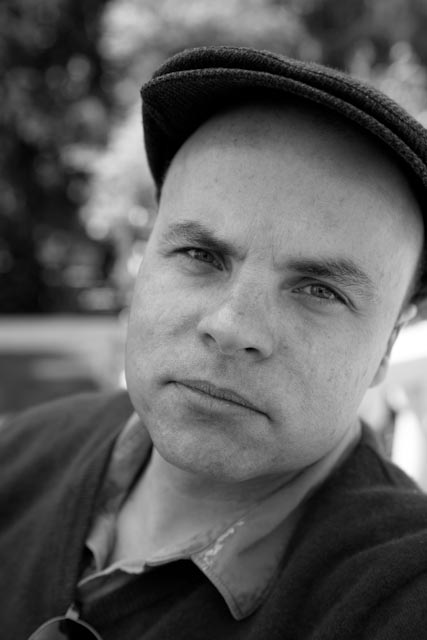
In the face of our new political reality, I plan to practice empathy as a playwright and resistance as a citizen.
In the room where I write, I’ve copied out a line by the Roman playwright Terence and stuck it on the wall at eye’s view: “Nothing human is alien to me.” Those who brought on and those who cheer for the political tsunami that has just crashed upon our republic—even as I am filled with rage toward them, I wish to understand them. So in my work, I will put their voices onstage, letting them speak with gravity and complexity, as I strive to love them.
In the same writing room, I’ve put up a sticky to remind me of U.S. Representative John Lewis’s belief that when the time comes to stand up to injustice, you must be willing to get into “good and necessary trouble.” Less than three weeks into this new reality, I don’t know yet what form that trouble will take. But I am going to march, protest, and, if need be, put my body in harm’s way in defense of this country that I love.
J.T. Rogers, playwright
Brooklyn
Everything Looks Different
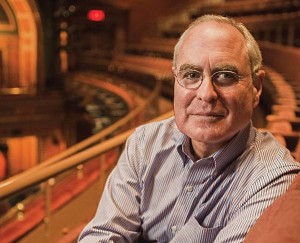
I think we’re all already experiencing the fact that every play we’re doing right now is being viewed through a different lens than the one we had when we programmed it. The perspective of both the audience and the artists has shifted since Nov. 9, regardless of who they voted for, and it’s important that we don’t gloss over that shift. Lines, moments, entire pieces are hitting our senses differently right now, and I don’t see that changing any time soon.
So a big part of our job will be to acknowledge these new circumstances and help to recontextualize our work within them. We have one play coming up that deals very directly with gun control, and we have another that deals with the legacy of the Holocaust for American Jews. The discussions we’ll be having around those issues will be different now, and I think we can expect to see more raw responses than we would have a few months ago.
Looking ahead, when choosing plays to revive, I’m always asking myself, “Why do we need to see this play again right now?” And there are plays that suddenly feel newly relevant. So I can see that affecting the choices we’re making for the season to come. More immediately, we’re hearing from a lot of artists who feel stuck right now, so we’re trying to make it clear that they have a home at Roundabout and a space in which to do their work. It feels important in this moment to let people know that they have a community to support them.
Todd Haimes, artistic director, Roundabout Theatre Company
New York City
Pain and Joy Are in the Job Description
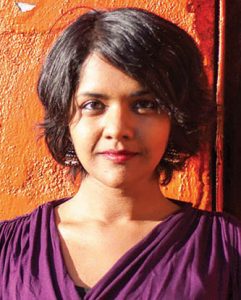
I worry that we can continue to do what we do, we can continue to create and produce the best art we can, but without a fundamental shift in the economic accessibility and social inclusivity of theatre, we’ll continue just talking to ourselves.
The forces that shaped the election are systemic and deeply complex, and the problems that assail theatre are similar in nature. Theatre in the U.S. is fundamentally elitist because the only people who can access it—both as audiences and artists—require time, capital (financial and social), and education to feel like they belong. That has to change. A lot of smart people have been trying to change this for a long time, and now it’s more vital than ever to listen, learn, and push forward.
After the election, I wondered if one possible short-term solution was for a billionaire to fund community theatres across the country with enough money and resources to produce free theatre for the next five years. I floated this idea to Chicago playwright Dawn Renee Jones, and her response was that it would be better to use that money to train and hire arts educators instead, in communities that are underserved for arts education. Empower as many people as possible to be artists, then support local theatres in producing local art. I love that idea, so if anyone reading this has a billionaire friend, let’s talk.
But on an individual level, we do have to continue doing what we do. The morning after the election, I thought my writing career was over, because it just seemed too painful to continue engaging with the world. Luckily, that feeling passed. As scared and worried as I may be, I am excited for the art that we are going to create. Let’s continue. Let’s challenge ourselves to expand our understanding of the world, illuminate its complexity, and open our hearts to different lives and experiences. Let’s try and make each other laugh.
While a benevolent billionaire might be nice, there are still things we can do, like going to bat for artists without MFAs or college degrees, vouching for future artistic leaders from underrepresented backgrounds, and volunteering our time, if possible, as teaching artists in our local communities (organizations like Young Storytellers in L.A. are a great place to start).
And finally, theatre alone is not going to save our country or the fate of our planet. But it can better prepare us to be responsible citizens. We’re all doing this for a reason: because making and consuming theatre brings us joy and meaning. So let’s use theatre to help us survive the next few years, but also channel that energy and force of community to protest and fight. Staying engaged with our world is hard and painful, but as theatremakers, that’s part of the job description already. We just have to take it to the next level—and be there for each other as we do.
Madhuri Shekar, playwright
New York City
More Vocal, More Visible
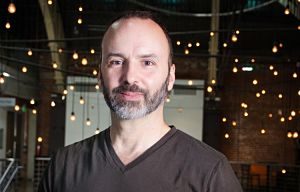
I confess I am struggling on this front. Personally, I feel alert to the dangers of the situation. The day after the election, I posted on Facebook about the similarities between Trump’s rise and Hitler’s, because from a bluntly historic point of view there are too many to ignore. Of course, then I see that a teacher in California was terminated for saying the same thing in his classroom. I live in Portland, so most of my liberal friends agreed, a few of my conservative friends (from the South) called me alarmist, and one donor shamed me. Perhaps my friends on the right are accurate—that Trump’s rhetoric during the campaign was all theatre, and his policies won’t be nearly as troubling.
But societies that wait too long to find out whether a leader with autocratic tendencies actually means what he says don’t end up with a power base from which to fight back. So I think we have to be more vigilant than we’ve likely been in our lifetimes.
From Portland Center Stage‘s perspective, we’re going to remain a safe space for divergent points of view, histories, and cultures—as we have always been. And if that is threatened in any way, our clarity on that front will likely be more vocal, more visible than it’s needed to be in the past. We are, of course, thinking about programming resonance in light of the changing times, but that’s always tricky, as the lag time between deciding to produce a play and actual time onstage is an eon in political terms.
If, as I fear, our rights as citizens begin to erode in any fashion, we will have to mobilize. Christiane Amanpour’s recent article about the chill she felt when the President-elect’s second statement was about the “crooked” media resonated deeply for me. The line between expressing that sentiment and shutting the media down, has been direct in too many autocratic states to ignore. And as Molly Smith suggested in The Washington Post, if the media is in the firing line the theatre comes quickly after.
Chris Coleman, artistic director, Portland Center Stage
Portland, Ore.
Dream Together
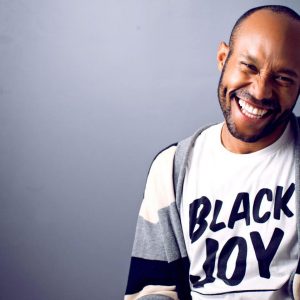
As I sit here to write this after the closing of our opening production for the 48th season at National Black Theatre, which was the world premiere of Sweet by Harrison David Rivers, I am reflecting on the power of theatre as a vehicle of healing, love, and possibility. When we activate those words, in its totality theatre is a revolutionary act, an act that gives community an opportunity to see themselves and see the authentic complexity of who we are as a people.
In the wake of this election season and its outcome, we desperately need theatre to be a space the champions authenticity. We need spaces that reflect our reality, spaces that demand for discourse and love to be at the forefront of why the art is being generated. We need spaces that conjure our imagination to envision a new world while loving and exploring our current reality. We need complexity! We can no longer live in the simplistic narratives that create umbrellas that support and reinforce stereotypical tropes.
Theatre has the possibility to be the embodiment of the American dream. It is an invitation to finally claim reconciliation for our bloody unspoken past. It is in theatre that intersectionality is given the opportunity to commune across gender, sexuality, culture, and religion. It is in the theatre, knowingly and unknowingly, that America is given the opportunity to be represented, heard, and informed. This is not just a mandate for the stage, however, but for every facet, corner and crevice that theatre occupies.
If we are not utilizing the spaces that we occupy to address the oppressive systems that have bound and generated the insidious current reality we live in, then we have already prescribed that our future generations should relive these dark times once again. I want us to live in the light, I want us to burn the fire that birthed movements and intellectual freedom, like what Dr. Barbra Ann Teer and many others did during the Black Arts Movement. These pioneers generated art that blazed a path towards liberation.
I want us to take risks! Theatre is healing, love, and possibility. Please activate it authentically and abundantly so we can be the oasis in the midst of this burning house. We have to start it right now and realize what we are really fighting for. I want my future godson to soar to places my wings could not yet go. I want us all to soar and evolve not just in conversation but in the actions we perform.
Jonathan MccCrory, director of theatre arts, National Black Theatre Inc.
New York City
Cracked Open
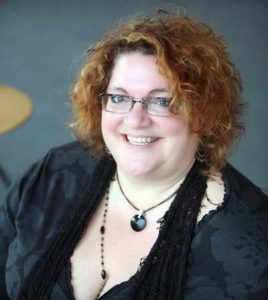
One of the most powerful takeaways from this year’s TCG Conference was hearing Samantha Power, U.S. Ambassador to the United Nations, testify to the astonishing power of theatre. She took 17 members of the U.N. known for their countries’ distinctly homophobic policies to see Fun Home on Broadway and found that that experience, more than any other attempt at dialogue, is what opened their minds and hearts. Something about the visceral and personal nature of the storytelling affected them in ways other reasonable discourse could not. It was an important reminder that the stories we tell and the way we tell them are critical to the cultural health of our communities, the nation, indeed the globe.
In times of great disturbance, more than ever theatre needs to do what it has always done: Engage the cultural conversation, crack us open to flood our brains with light, and push us to talk hard. We of course must continue to program writers, hire directors, designers, actors, and other theatre professionals whose stories and work reflect the ethnic, economic, and social diversity of the actual world around us.
But on Nov. 9, it became clear that my perception of my country and some part of its greater reality were not aligned. There is a disconnect that cracked me open. So now I’m trying to reach for deeper understanding. Find a way to listen harder, better. Seek to build a bridge over the chasm of the somewhat rarefied world I live in and what is going on beyond my own circles with humility and openness.
Because more than ever we need to be whole-truth tellers. Raw. Passionate. Realism or Style, who cares—but uncompromising. To excoriate positions we are against is worse than useless; we need to really see and understand how everyone’s arrived where they are and represent that brilliantly. We must tell the truth with love. To quote Aaron Posner’s Stupid Fucking Bird, “We need bigger hearts. We need wider minds. And we need them now. We need them NOW.”
There’s a reason why once a theatre moves into a neighborhood, revitalization follows. We must make every effort to make a steady encroachment into all the neighborhoods of our country and revitalize them—one linear, nonlinear, fucked-up, fractured, complex, simple, resonant narrative at a time. We must be vigilant with ourselves, and keep asking: Are we reflecting and refracting both the raw reality we see and the reality we hope to evolve?
The only way to do that is to honor what has ever been true about the theatre. It is a sacred place. A place of communion, one of the last places where people gather together to bear witness, to share in the same space a common experience. So if the theatre artists push, passionately, on the cultural conversation, we can make new experiences common. It is then our obligation to remake the common experience into our better reality. As Stoppard said so brilliantly, “The more witnesses there are, the thinner it gets and the more reasonable it becomes until it is as thin as reality, the name we give to the common experience.”
So let us be vital, necessary, and offer the communion of shared experience as a prayer for reshaping the world. It is our rallying cry.
Jessica Kubzansky, co-artistic director, Theatre @ Boston Court
Pasadena, Calif.
Get Up, Stand Up
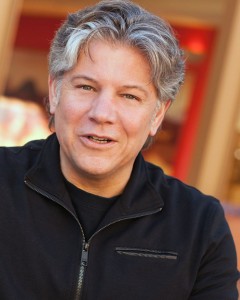
As an enrolled member of the Choctaw Nation of Oklahoma, an artist, actor, and educator, and a faculty member at a diverse public university, it strikes me personally that the presidential election of 2016 has been compared favorably to the election of President Andrew Jackson in 1828. Jackson was the architect of the removal of Native American tribes from the southeastern United States, commonly called the “Trail of Tears.” In addition to being forcibly removed from our ancestral homelands, many thousands of our 15,000-20,000 Choctaw citizens died along the “Trail” during the long trip from the southeastern U.S. to “Indian territories” in Oklahoma.
But we are a profoundly resilient people. Our Choctaw nation has rebounded and now numbers more than 225,000. I believe our power is to band together in allyship motivated by love and determination to stand for commonly held values. And I believe now is the time for all to come together for love, support, and strength and stand together as a united community across all barriers.
We know communities that became targets of violence during the election are now under attack. One such attack was reported on my campus at San Diego State University, the day after the election, Nov. 9. More have followed on other campuses and in cities across the United States. Only five days after the election, more than 250 such incidents of “hate crimes” have been reported, more than all those reported in the six months prior.
I believe it is time to take a stand.
Mothers, Elders, educators, faith leaders, community activists, government officials, artists, transportation workers, public service workers, athletic leaders, culture bearers, organizational leaders, philanthropists, small business owners, industry leaders, bosses, fathers, and all those with circles of influence or power who are not listed: It is time to state your beliefs.
Targeted communities in this election cycle deserve to know who stands with them. I am here to say:
- I stand with people of color.
- I stand with lesbian, gay, bisexual, transgender, and queer communities.
- I stand with new immigrants and their descendants seeking to make contributions to our country.
- I stand with all people of faiths who are targeted by the incoming government.
- I stand with women who are claiming their power to speak up for all aspects of human rights.
- I stand with women who may feel powerless in the wake of the election of a President who has unapologetically admitted to sexual assault.
- I stand with those incarcerated for the benefit of capitalism.
- I stand with refugees fleeing violence in our war-torn world.
- I stand with activists who openly support and lift up these people.
- I stand with the descendants of more than 8 million slaves in the U.S.
- I stand with the descendants of the millions of first people of the lands of the U.S., before Europeans.
- I stand with my family.
I will state these values often. I will seek to hold accountable those who assault these communities. I will look to learn from my allied communities. I will look to transform any of my own racist, misogynistic, power-gathering tendencies or behaviors, both known or unconscious. I will listen to those with whom I have conflict. I will not stand idly by when my allies, family, or their rights are being threatened or diminished.
Now is the time to put action to words. Now is the time to engage those with whom we disagree to determine if there is a path forward. We must examine our personal truths. Truth must include all the citizens of our country. We must find a foundation of understanding if there is to be any hope for union beyond our communities. We must practice actions to demonstrate that all U.S. citizens are sacred. Standing together can expand trust and support. We are not alone. I suspect we are the majority of the country. And we must stand to be counted.
I give other leaders permission to use this statement as they craft their own commitments to 2017 and beyond.
Randy Reinholz, producing artistic director, Native Voices at the Autry
Los Angeles


